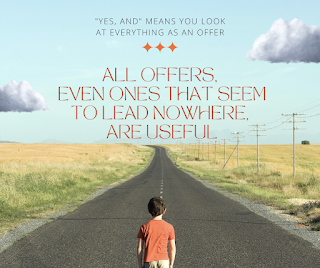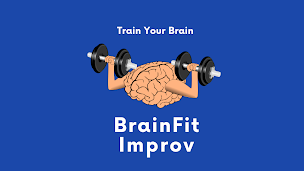Improvising in the Dark: How to "Yes, And" When it All Falls Apart

No matter what happens on stage, improvisers are called to keep the scene going. If there is a flub, we can’t deny what happened. That means we can’t ignore it or explain it away. The flub now becomes part of our reality. The rule is, “deal with it and move on.” It’s the basis of “Yes, and.” Life off the stage is equally fraught with flubs, failures, disappointments, and disasters. It’s part of being human. We all experience failure. We all suffer pain and grief. Whether it’s pain of our own causing or from something out of our control, there is no escaping it. Nietzsche said, “to live is to suffer.” He also said, “to survive is to find some meaning in the suffering.” The Four Noble Truths of Buddhism proclaim that life always involves suffering. Suffering comes from our desires, but one can put an end to suffering through practiced living. (This is a very inadequate summary of Buddhist thought, but it gives a rough idea.) Christian Scripture proclaims that, “perfect l...






